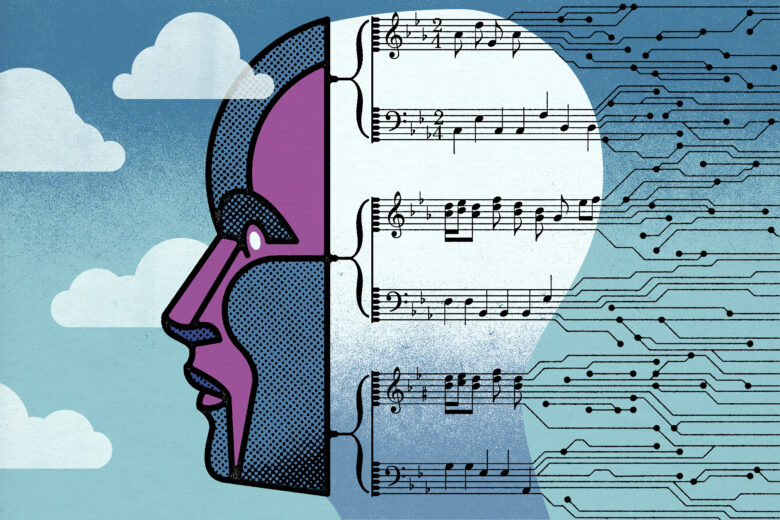Music has always been a language of emotion, transcending barriers and borders. Its universality has been admired, respected, and adored by people all over the globe. Yet, despite its expressive power, the music industry has experienced its share of challenges, struggling to keep pace with the seismic shifts brought about by digitalization. But, the advent of innovative business technology promises to change the landscape, giving the industry the tune-up it needs.
In the age-old dance of innovation and adaptation, the entertainment sector has often found itself trailing behind other industries. Nonetheless, it is now poised at the edge of a profound transformation. The crux of this change hinges on the integration of business tech – tech designed explicitly to improve operational efficiency, profitability, and competitive edge. The integration of business tech in the music industry is more than merely a matter of upgrading the tools artists use to create music or how consumers access it. It extends to the intricate tapestry of music production, distribution, marketing, and consumption. Emerging technologies such as blockchain, artificial intelligence (AI), and data analytics are ushering in a new era that is transforming the industry’s fundamental business models. Keep reading to explore how the blend of music and technology is not just an upgrade but a radical shift in the industry’s very fabric.

Source: washingtonpost.com
Contents
Streamlining Artist Discovery
In the analog era, discovering new artists was a notoriously labor-intensive process. Talent scouts would trawl through bars, clubs, and music festivals, hoping to stumble upon the next big thing. Fast forward to the digital age, AI is emerging as a game-changer in talent discovery.
AI and machine learning algorithms can sift through vast amounts of music data to identify patterns and trends, offering valuable insights into potential hits and emerging artists. They can analyze music and social media data to determine which artists are poised for success, drastically reducing the guesswork and resources required in traditional scouting. This technology, coupled with predictive analytics, creates a more streamlined, efficient method of artist discovery, contributing to a more diverse and dynamic music scene.
Revolutionizing Event Organization
The complexities of event organization have long been a stumbling block in the music industry. However, business tech is changing this, particularly when it comes to the planning and management of live concerts. Services like JamBase, Bandsintown, and LastFM, a digital platform for artists and fans, are leveraging advanced data analytics to improve the process of event organization.
Bandsintown Concerts, for instance, provides real-time analytics on fan demographics, engagement metrics, and ticket sales. This data assists artists and event organizers in making informed decisions, like optimizing tour dates and locations based on fan demand and analyzing ticket sales to predict concert turnout. The result is a more streamlined, efficient, and successful process, marking a significant upgrade in the way live events are planned and managed.

Source: musically.com
Enhancing Fan Engagement
Every industry thrives with a committed and engaged customer base. In the music industry, these are the fans. Their loyalty and enthusiasm are essential for an artist’s success. Business technology plays an instrumental role in enriching fan engagement and promoting a deeper connection between artists and their followers.
By leveraging AI, machine learning, and data analytics, platforms can offer personalized experiences to listeners, curating music recommendations based on individual preferences and listening habits. Meanwhile, social media platforms and virtual reality technologies are being harnessed to create immersive digital experiences. Artists can now conduct virtual concerts or use augmented reality (AR) filters for interactive music videos, bringing fans closer to the music they love. This use of tech enhances the fan experience, allowing for more personalized and engaging interactions with artists and their music.
Encouraging Sustainability
Business tech is also opening avenues for sustainability in the music industry. Traditionally, physical productions like CDs, vinyl records, and even large-scale events have generated significant environmental impact. However, with the rise of digital platforms and virtual concerts, the industry is moving towards more eco-friendly practices. Cloud-based storage systems for music, and the increasing use of renewable energy sources for powering tech-based music operations, signal a greener future for the music world. The inclusion of business tech in the music industry isn’t just an economic upgrade but an ecological one too.

Source: hiresure.ai
Fostering Fair Compensation
Fair compensation for artists is one of the most contentious issues in the music industry. With the rise of streaming platforms, traditional revenue streams have been disrupted, often to the detriment of the artists. This is another area where business tech, specifically blockchain technology, is making significant strides.
Blockchain, the technology underlying cryptocurrencies like Bitcoin, is being adopted to create more transparent and equitable payment systems. By decentralizing the control of music distribution, blockchain enables direct transactions between artists and consumers. This direct approach bypasses traditional intermediaries, such as record labels and streaming platforms, ensuring artists receive a greater portion of their music’s profits. Furthermore, smart contracts – self-executing contracts with the terms of the agreement directly written into code – enable automatic payment distributions as soon as a song is streamed or downloaded. This ensures prompt and fair compensation, addressing one of the longstanding challenges faced by artists.
Finale
The integration of business technology in the music industry is more than a simple upgrade. It is a symphony of changes, ushering in a new era that promises to be more efficient, engaging, and equitable. By streamlining artist discovery, revolutionizing event organization, enhancing fan engagement, and fostering fair compensation, tech is harmonizing the industry, making it more attuned to the needs of artists and fans alike.
As we witness these transformations, we can be assured that the future of the music industry is not just about surviving in the digital age but thriving in it. Technology, in its disruptive glory, is not the enemy of music but rather its enabler, ensuring that this universal language continues to touch hearts, stir souls, and unite people across the globe. The integration of business tech is the backstage pass that the music industry needed – a pass to a future of unprecedented potential, harmony, and growth.
